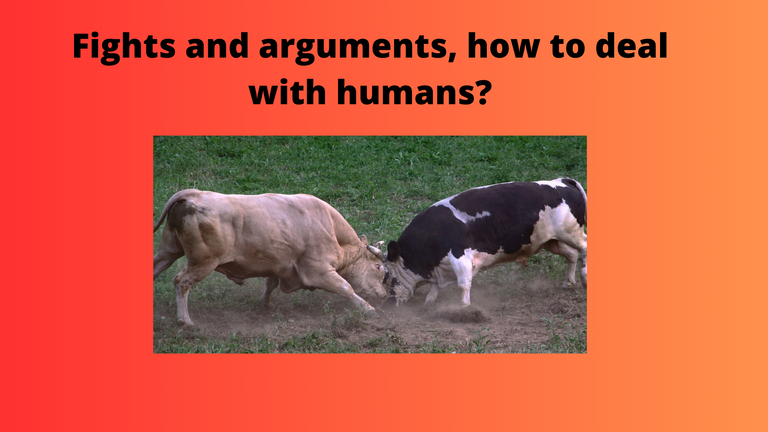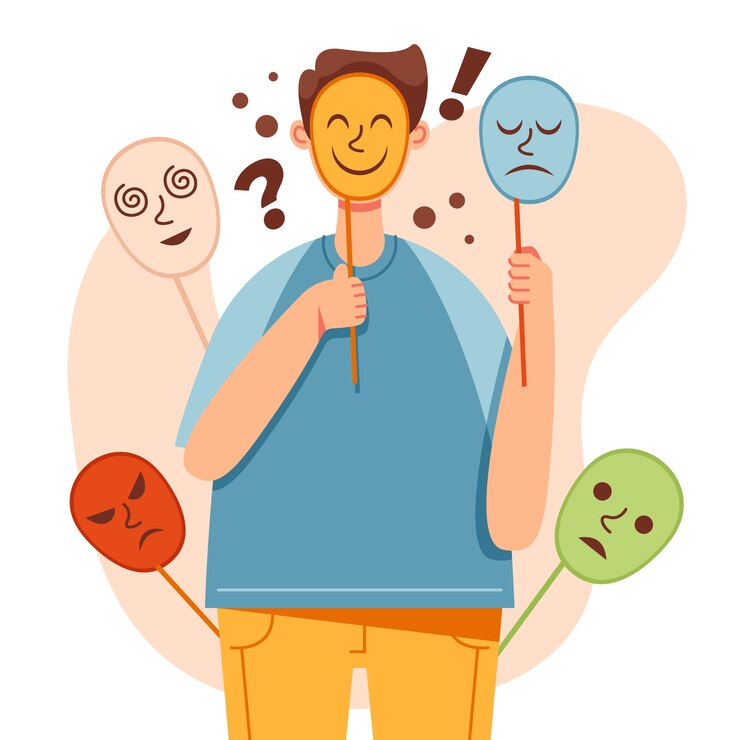
If I could choose, I would live far away from any human conflicts. Dealing with humans means dealing with different opinions, which sometimes. People have different views of what is right or wrong. Even if there are rules that make it a normalized value of right and wrong. And that happens at home with my wife or my parents, at work with colleagues and even here in Hive. Arguments are common in the way we manage them; that is the trick. I am still learning, and far from perfection but here is what I learned so far.

In the past, I was mostly the weak link of an argument, used to swallow all the other side's opinions and adding mine as less important, subjugation is the right word for that. But I learned that it doesn't work well. We are humans with our own opinions and accepting the others' opinions even disagree, causes inner stress. We don't feel comfortable and we feel a deep pain. So the first lesson is to always put in the table your opinion. Even if it doesn't get approved by the majority in the discussion, at least you can sleep well thinking that you did your best to be heard. In addition, the other can be sensitive and accept your opinion and that creates a great feeling.
The second lesson, which is hard sometimes, is how to communicate your opinion. People usually like dealing with those who are honest. But the raw truth can hurt. Humans are gifted to interpret the same idea in a thousand ways. Sometimes you didn't say anything wrong, but the listener is influenced by many internal feelings and gets these as harmful ideas. So we need to expose our ideas in a way that creates a good environment for the other to receive them. Starting with praising the other is a good strategy, for example, like "I understand how you feel" or "Your idea is good, but I think that..."
So, exposing your opinion and trying to find a non-conflicting approach in our ideas when exposed creates a good environment for ourselves and the other in an argument. But still, things can go wrong with someone that is inflexible. So after we managed the two approaches cited above, we can rest assured that we did our best for the argument to end in a good way. So it is time to withdraw from this argument, which doesn't mean a loss. But maybe you can say that "Ok, we can't talk right now because you aren't ready to accept a different approach, so we will try another time". It is like, for now, we will cease the argument, but if it is something important that represents something important, it needs to be debated again at another time. Sometimes people need some time to think. Also, saying and exposing that you got hurt by the other words is important. If the person cares about you, they will come back differently next time.

The tips that I cited could work great in theory, but it is hard to execute in real life. I fail many times since emotions appear and my inner child sometimes gets hurt. I learn a lot after every argument that I get into. I hate arguments, but I keep learning and growing. I hope that the people on the other side also learn something. That's how it works.



Se eu pudesse escolher, viveria longe de qualquer conflito humano. Lidar com humanos significa lidar com opiniões diferentes, o que às vezes... As pessoas têm visões diferentes sobre o que é certo ou errado. Mesmo que existam regras que normalizem o que é certo e errado. E isso acontece em casa com minha esposa ou meus pais, no trabalho com colegas e até aqui no Hive. Discussões são comuns na forma como as lidamos; esse é o truque. Ainda estou aprendendo, e longe da perfeição, mas aqui está o que aprendi até agora.

No passado, eu era basicamente o elo fraco de uma discussão, acostumado a engolir todas as opiniões do outro lado e adicionar a minha como menos importante; subjugação é a palavra certa para isso. Mas aprendi que isso não funciona bem. Somos humanos com nossas próprias opiniões, e aceitar as opiniões dos outros, mesmo que discordemos, causa estresse interno. Não nos sentimos confortáveis e sentimos uma dor profunda. Portanto, a primeira lição é sempre colocar sua opinião na mesa. Mesmo que ela não seja aprovada pela maioria na discussão, pelo menos você pode dormir tranquilo pensando que fez o seu melhor para ser ouvido. Além disso, o outro pode ser sensível e aceitar sua opinião, o que cria uma ótima sensação.
A segunda lição, que às vezes é difícil, é como comunicar sua opinião. As pessoas geralmente gostam de lidar com pessoas honestas. Mas a verdade nua e crua pode machucar. Os humanos têm o dom de interpretar a mesma ideia de mil maneiras. Às vezes, você não disse nada de errado, mas o ouvinte é influenciado por muitos sentimentos internos e recebe isso como ideias danosas. Portanto, precisamos expor nossas ideias de uma forma que crie um bom ambiente para o outro aceitá-las. Começar elogiando o outro é uma boa estratégia, por exemplo, dizendo "Eu entendo como você se sente" ou "Sua ideia é boa, mas eu acho que...".
Portanto, expor sua opinião e tentar encontrar uma abordagem não conflitante em nossas ideias quando expostas cria um bom ambiente para nós e para o outro em uma discussão. Mesmo assim, as coisas podem dar errado com alguém inflexível. Então, depois de lidar com as duas abordagens citadas acima, podemos ter certeza de que fizemos o nosso melhor para que a discussão terminasse bem. Então, é hora de desistir dessa discussão, o que não significa uma derrota. Mas talvez você possa dizer: "Ok, não podemos conversar agora porque você não está pronto para aceitar uma abordagem diferente, então tentaremos em outra ocasião". É como se, por enquanto, encerrássemos a discussão, mas se for algo importante, que represente algo importante, precisa ser debatido novamente em outro momento. Às vezes, as pessoas precisam de um tempo para pensar. Além disso, dizer e expor que você se sentiu magoado pelas outras palavras é importante. Se a pessoa se importa com você, ela voltará diferente da próxima vez.

As dicas que citei podem funcionar muito bem na teoria, mas são difíceis de colocar em prática na vida real. Eu falho muitas vezes, pois as emoções afloram e minha criança interior às vezes se machuca. Aprendo muito depois de cada discussão em que me envolvo. Detesto discussões, mas continuo aprendendo e crescendo. Espero que as pessoas do outro lado também aprendam alguma coisa. É assim que funciona.


